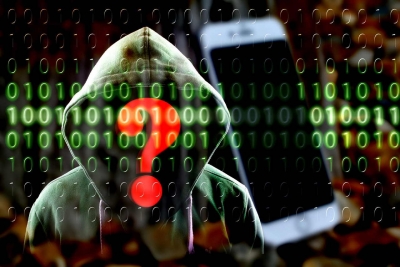Cyber-attacks on employees of Indian firms have surged by a jaw dropping 845 percent, since October, says a recent report.
According to the Threat Intelligence report from cyber security firm Check Point, the total number of mobile attacks on Indian organizations in October 2020 was 1,345, but in March this year it reached 12,719 companies.
During 2020, researchers discovered a highly significant attack, in which threat actors used the mobile device management (MDM) system of a large international corporation to distribute malware to more than 75 of their managed mobile devices.
Worldwide, 97 per cent of organisations surveyed encountered mobile threats that used multiple attack vectors in the past year.
While 46 per cent of organisations surveyed had at least one employee download malicious mobile applications, at least 40 per cent of the world's mobile devices are inherently vulnerable to cyberattack.
Neatsun Ziv, VP Threat Prevention at Check Point Software said that "As we have seen in 2020, the mobile threat landscape has continued to expand with almost every organisation now having experienced an attack."
With 60 per cent of workers forecast to be mobile by 2024, mobile security needs to be a priority for all organisations, the report mentioned.
Almost every organisation experienced at least one mobile malware attack in 2020.
"Ninety-three percent of these attacks originated in a device network, which attempts to trick users into installing a malicious payload via infected websites or URLs, or to steal users' credentials," the findings showed.
Research has shown that at least 40 percent of the world's mobile devices are naturally vulnerable to cyberattacks due to flaws in their chipsets, and require immediate patching.
The report said that "Threat actors have been spreading mobile malware, including Mobile Remote Access Trojans (MRATs), banking trojans, and premium dialers, often hiding the malware in apps that claim to offer Covid-19 related information."




















